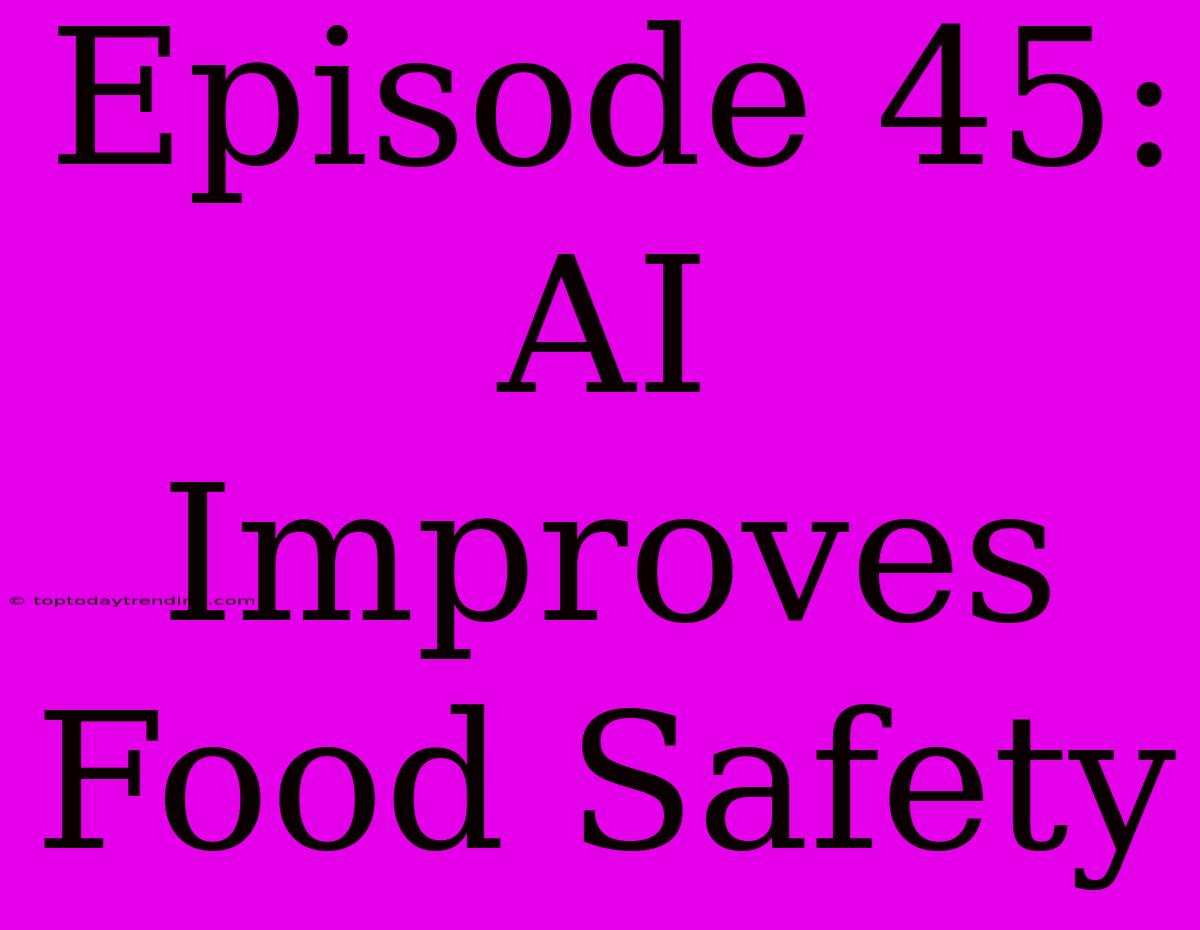Episode 45: AI Improves Food Safety
Introduction
Food safety is a paramount concern for individuals and businesses worldwide. From farm-to-fork, ensuring the quality and safety of food products is a complex and multi-layered process. Traditional methods of monitoring and inspecting food often involve manual processes, which can be time-consuming, prone to human error, and inefficient. However, the emergence of Artificial Intelligence (AI) is revolutionizing food safety, offering a transformative approach to safeguard our food supply.
AI-Powered Solutions for Enhanced Food Safety
1. Predictive Analytics for Proactive Risk Management:
- Early Warning Systems: AI algorithms can analyze vast amounts of data, including historical food safety records, weather patterns, and agricultural practices, to identify potential risks and predict outbreaks before they occur. This allows for timely interventions and mitigates the impact of foodborne illnesses.
- Supply Chain Monitoring: AI can track food products throughout the supply chain, from origin to consumption, ensuring traceability and identifying any potential contamination points. This data can help pinpoint sources of outbreaks and prevent future incidents.
2. Automated Inspection and Detection:
- Computer Vision: AI-powered vision systems can analyze images and videos of food products, identifying defects, contamination, and foreign objects with remarkable accuracy. This technology streamlines inspection processes and eliminates human bias.
- Sensor Technology: AI-enabled sensors can monitor critical food safety parameters like temperature, humidity, and microbial growth in real-time. This continuous monitoring helps maintain optimal conditions and provides immediate alerts in case of deviations.
3. Enhanced Food Quality Control:
- Product Authentication: AI can analyze food samples to determine authenticity and detect counterfeit or adulterated products. This combats fraud and ensures consumers receive genuine products.
- Nutritional Analysis: AI algorithms can analyze food ingredients and provide detailed nutritional information, helping consumers make informed choices and manage dietary needs.
Benefits of AI in Food Safety:
- Increased Accuracy and Efficiency: AI reduces human error and speeds up inspection processes, leading to improved food safety standards.
- Early Detection and Prevention: Predictive analytics and real-time monitoring enable early detection of risks, allowing for timely interventions and prevention of outbreaks.
- Improved Consumer Confidence: AI-powered solutions ensure food safety and traceability, building trust and confidence among consumers.
- Reduced Costs and Waste: AI optimizes resource allocation and minimizes waste, resulting in cost savings and a more sustainable food system.
Conclusion
AI is revolutionizing food safety, offering innovative and effective solutions to address existing challenges. From predictive analytics to automated inspection and quality control, AI empowers businesses and consumers to safeguard their food supply. As AI technology continues to evolve, we can expect even more groundbreaking applications in the future, ensuring a safer and more secure food system for generations to come.

